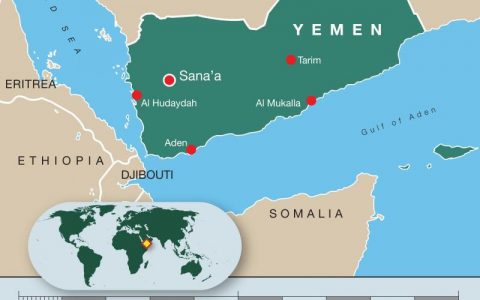On 15 September, more than 20 members of the Bahá’í community in Yemen, including all their national leaders and minors, were falsely accused of espionage and apostasy at a Houthis-controlled Sana’a court hearing.
The accusations, inspired by religious motives, made by the de facto authorities in Sana’a at the hearing, followed the recent hate speech promoted by the leader of the Houthis. In recent years, there has been an escalation in the level of activity to oppress Yemeni Baha’is, including a death sentence in January and mass arrests.
The trial began only with the presence of the judge, prosecutor and other court officials; neither the accused Bahá’ís nor their lawyers were informed of the court session. The next hearing is scheduled for September 29 in Sana’a, to which the judge has summoned those absent from the first court session, including several women and a teenage girl.
“The charges are extremely alarming and mark a severe intensification of pressure at a time when the community is already threatened and the general humanitarian crisis in the country requires urgent attention,” said Bani Dugal, senior representative of the Bahá’í International Community to the United Nations.
“We have reason to be concerned about the security of the Bahá’í community in Yemen. We urge the international community to call on the authorities in Sana’a to immediately abandon these absurd, false and unfounded accusations against these innocent people who have been maliciously accused merely for having practiced their faith.
“The way in which the Houthis are attacking the Bahá’í community in Yemen is disturbing, as it is very similar to the persecution of Bahá’ís in Iran in the 1980s, during which Bahá’í community leaders were rounded up and killed,” added Ms Dugal.
In a televised speech earlier this year, the leader of the Houthis vilified and denounced the Bahá’í Faith, further intensifying the ongoing persecution of the Bahá’í community in Yemen. Abdel-Malek al-Houthi accused the Baha’i Faith of being “satanic,” said it was “waging a doctrinal war against Islam,” and urged Yemenis to defend their country from Bahá’ís and members of other religious minorities on the pretext that “those who destroy people’s faith are no less evil and dangerous than those who kill people with their bombs.
In 2016, more than 60 people – women, men and children – participating in an educational meeting organized by Bahá’ís were arrested as part of a massive crackdown on this religious community.
Hamed bin Haydara, a member of the Yemeni Bahá’í community and arrested since 2013, was sentenced to public execution for his faith earlier this year and is now one of six Bahá’ís imprisoned in the country for practicing his faith. After a lengthy judicial process and a cruel imprisonment of almost five years, a final court hearing was held in January 2018, at which the accused was prevented from attending and sentenced to death.
It is understood that Abdu Ismail Hassan Rajeh, the same judge who presided over Mr. Haydara’s farce case, is overseeing the current case.
Despite increasing pressure from the international community, six Bahá’ís remain in prison. Reports indicate that the Houthis are monitoring and trying to identify Bahá’ís in all areas under their control.
For more information, visit: https://www.bic.org/situation-in-yemen/reports-situation-yemen
Translated from Spanish by Pressenza London










